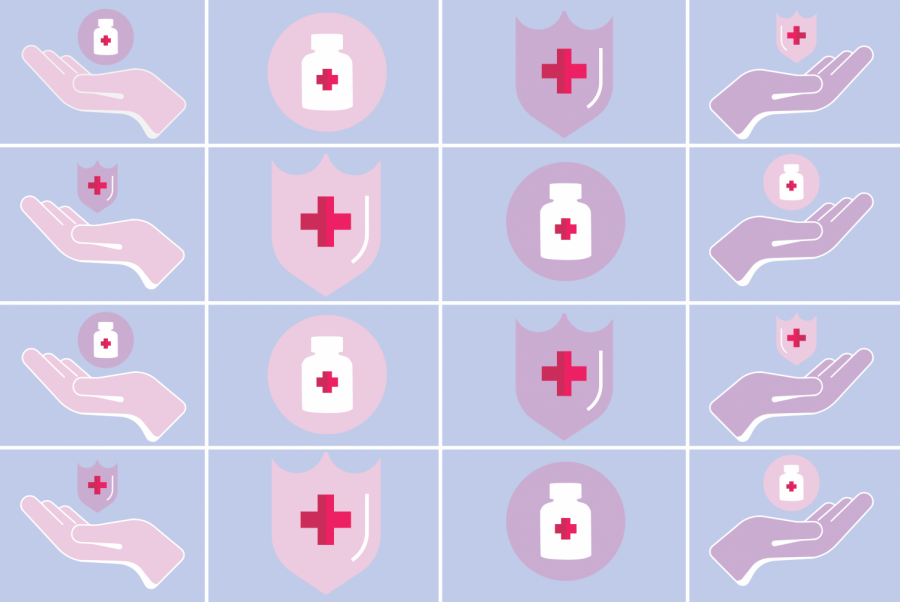As someone who works in health care, University of Minnesota alum Rowan Mahon was used to hearing about a lot of waste, especially when it came to medications.
When taking her pharmacy college admissions exam, she read a story about a nurse who spent an entire day popping unused pills out of their packaging and throwing them away. Months later as a pharmacy student in the emergency room, Mahon saw the other side of medication surplus. Part of her day-to-day involved seeing patients admitted to the ER because they could not afford to take their medications.
Now, to redirect the supply, Mahon has been working on creating Minnesota’s first comprehensive medical repository.
The nonprofit RoundtableRx, which officially launched in September, will accept unused, unexpired and unopened medication from places like long-term care facilities and distribute them to clinics that primarily help underserved communities. Her long-term goal is to start a mail-order system, which will allow the nonprofit to send medication to patients directly and reach Minnesotans in rural areas as well.
RoundtableRx only accepts medications in tamper-proof, clear packaging. Mahon said the nonprofit will also accept unused inhalers and EpiPens but no controlled substances like opioids.
“It can be a misconception that only individuals who are really low-income are the ones that are struggling, and that’s not the case. This is really an issue for most people,” she said. “One third of Americans are struggling to afford the medications they need — and that’s people with insurance.”
Changing health in the state
In order to establish this repository, Mahon had to get a Minnesota law changed.
In the U.S., 21 other states have medical repositories. The original Minnesota drug repository law was focused on only collecting cancer medication. Along with fellow student Hannah Van Ochten, Mahon advocated for the change beginning in 2017.
They garnered support from University faculty, legislators and the state Board of Pharmacy to broaden the law to include other medications, while still maintaining the same safety standards. They succeeded in changing the law in 2019.
Earlier in September, Mahon placed second in the student division of 2020 MN Cup, a community-led business competition that supports entrepreneurs with tools and resources to launch and develop their new ventures. On Sept. 22, Mahon won first place in the crowd pick category for her business pitch for RoundtableRx, receiving a total of $6,000 despite it being her first year participating in the competition.
“This startup has the potential to change health care throughout the state,” said Mary MacCarthy, who advises Mahon and serves as chair of the RoundtableRx board of directors. Not only will the nonprofit help redirect medications to those who can use them, it will eliminate the number of prescriptions entering the waste stream, she said.
When people flush medications down the drain, the chemicals that were supposed to metabolize in the body are now entering lakes, streams and rivers, said Mark Ferrey, an environmental scientist who monitors chemicals in surface water for the Minnesota Pollution Control Agency.
Some of these chemicals can disrupt the reproductive cycles of fish and wildlife and have a noticeable impact on their behavior, he said. Even though his studies have shown the chemicals are present in small concentrations, even trace amounts can have a significant impact. He recommends people dispose of medications in one of these collection sites instead.
Why the medication surplus happens
Medication surpluses originate from two sources: when supply chains overproduce and overorder prescription drugs and when patients no longer need or use their medications, said Kiah Williams, co-founder and director of SIRUM, a partner of RoundtableRx. This nonprofit creates the networks necessary to distribute medication from places like long-term care facilities to charitable clinics and pharmacies.
Williams said places like hospitals and pharmacies often overorder medications to ensure they have it on hand when they need it. The second source of surplus is patient-driven. Various circumstances — like a change in medication, a patient’s death or a patient forgetting to pick up their medication — create surplus waste that could be incinerated or flushed.
In the U.S., about 10 million people who have one or more chronic conditions have trouble affording the medication they need, Williams said. And when medication is so expensive and this level of waste exists, the medical system is not being efficient, she said.
“We have the highest health care costs of any developed nation per capita. And it’s not sustainable,” she said. “What’s really important here is the cost that we’re expecting people to bear out of their pocket, and I think medications are where this really comes to [a] head.”
SIRUM has set up distribution sites in states like California, Iowa, Colorado, Ohio, Georgia and North Carolina and has prevented over $78 million worth of medication from being wasted. Williams anticipates within the next five years, the nonprofit will save over $772 million of waste.
“These repository programs are important because it shows a path forward in health care where we can improve our results, provide dignity to the people who deserve it — which is everyone,” Williams said. “And we can show that we can do this with the existing resources that we have.”
Correction: A previous version of the article misstated RountableRx’s award in the MN Cup.








